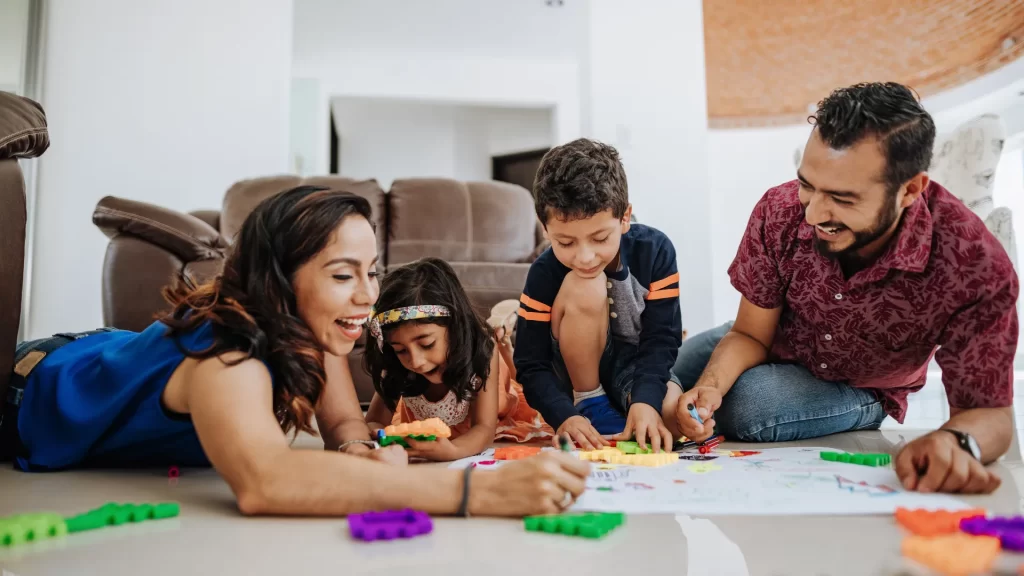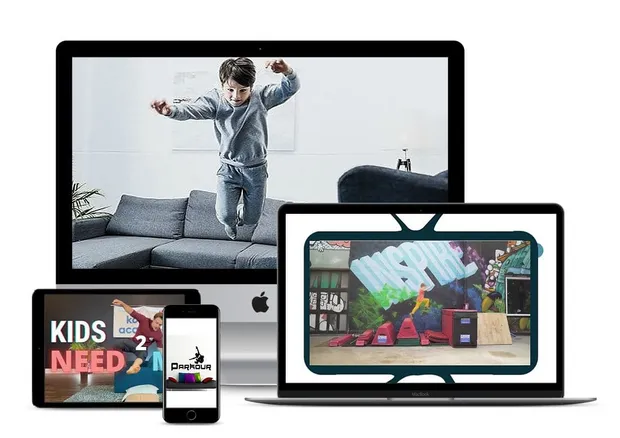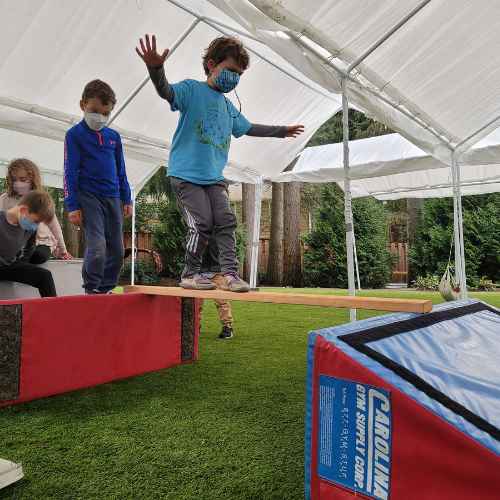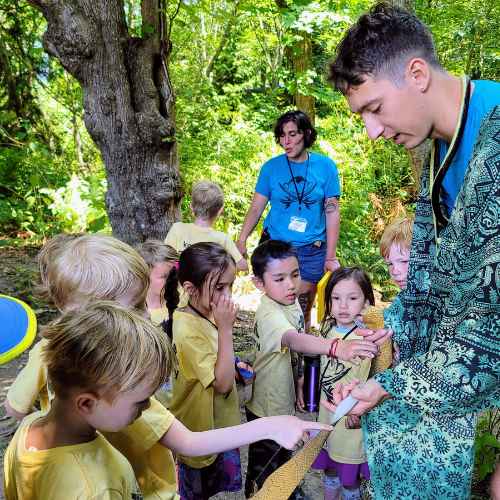
Watching kids grow and develop their independence is one of the most rewarding parts of parenting. It’s amazing to see them take on new challenges, make decisions on their own, and gain confidence in their abilities. But how do kids learn to be independent? It doesn’t just happen overnight. With a little guidance and encouragement, children can learn the skills they need to navigate the world on their own.
Here are some simple and effective ways to help your kids become more self-reliant and independent.
What Exactly Is Independence?
Independence is all about being able to do things on your own without needing constant help from others. For kids, this means being able to take care of themselves, make decisions, and solve problems by themselves. It’s like learning to ride a bike. At first, they might need some guidance and support, but eventually, they can pedal away on their own.
Developing independence is a gradual process, and it helps kids build confidence, resilience, and a sense of responsibility. It’s an important part of growing up and becoming capable, self-sufficient adults.
Why It’s Advantageous For Kids To Learn How To Be Independent Incrementally?
Teaching kids to be independent step by step has a lot of benefits. When kids learn gradually, they build confidence and skills at a comfortable pace. It’s like stacking building blocks, each new skill builds on the one before it, making them stronger and more capable over time.
Learning incrementally also helps kids handle challenges better. They get used to facing small problems and figuring out solutions on their own. This way, when bigger challenges come up, they feel more prepared and less overwhelmed.
Plus, taking it slow gives kids a chance to feel proud of their achievements. Every small step towards independence is a win, boosting their self-esteem and making them more eager to tackle the next challenge. It’s a great way to help them grow into confident, capable adults.
What Does An Independent Kid Look Like?
An independent kid is someone who can handle tasks and make decisions on their own. You might see them getting ready for school on their own, picking out their clothes, or packing their lunch. They can do their homework without being reminded, or take the initiative to clean up their room without being asked.
Independent kids are also problem-solvers. When they face a challenge, they try to figure it out themselves before asking for help. They might even come up with creative solutions to everyday problems, showing their ability to think on their feet.
Most importantly, an independent kid feels confident in their abilities. They aren’t afraid to try new things or make mistakes, because they know that every experience helps them learn and grow. They take pride in their accomplishments and are always ready to take on the next challenge.
Nurturing Age-Appropriate Independence In Your Kids
Helping your kids become independent doesn’t happen overnight. It’s a gradual process that evolves as they grow. By encouraging age-appropriate independence, you can guide your children to develop the skills they need at each stage of their development. Here are some age-appropriate skills that can nurture independence from early childhood through the pre-teen years.
Starting at 4 or 5
At this age, kids are eager to do things on their own. Encourage their independence by giving them simple tasks.
Dressing Themselves
Encourage kids to choose their outfits and dress themselves. This activity helps them learn about making choices and builds their self-confidence. It also introduces them to the concept of personal responsibility for their appearance.
Picking Up Toys
Teach them to clean up their toys after playtime. This fosters a sense of responsibility and helps them understand the importance of taking care of their belongings. Plus, it makes the house tidier!
Helping with Simple Chores
Let them help with small tasks like setting the table or watering plants. These activities make them feel like an important part of the household and teach them the value of contributing to the family.
Making Simple Snacks
Allow them to prepare easy snacks, like spreading peanut butter on bread or slicing bananas with a safe knife. This promotes self-reliance, gives them a sense of achievement, and starts to build basic cooking skills.
Growing into 6-8 Independence
As kids get a bit older, they can handle more responsibilities. This age is also great for fostering problem-solving skills. Encourage them to try solving minor issues on their own before stepping in.
Homework Routine
Encourage them to start their homework on their own. This builds a habit of self-discipline and time management, teaching them to prioritize their responsibilities without constant reminders.
Organizing Their Space
Teach them to keep their room tidy and organized. It helps them develop a sense of responsibility for their personal space and belongings, and instills good organizational habits.
Preparing Simple Meals
Involve them in making breakfast or lunch, like making a sandwich or mixing a salad. This activity boosts their confidence in the kitchen, enhances their self-sufficiency, and provides an opportunity for you to spend quality time together.
Managing Personal Hygiene
Make sure they brush their teeth, comb their hair, and bathe without reminders. This fosters a sense of personal care and routine, helping them understand the importance of hygiene and self-care.
Graduating to 9-12 Independence
Pre-teens are ready for even more independence. Always be there to guide and support, but give them the space to make their own decisions and learn from their experiences.
Handling Money
Give them an allowance and teach them how to budget. It introduces financial responsibility and planning.
Taking on Bigger Chores
Assign tasks like mowing the lawn or doing laundry. It shows them how to manage larger responsibilities.
Planning and Cooking Meals
Let them plan a simple meal and cook it with minimal supervision. It enhances their culinary skills and independence.
Managing Schedules
Encourage them to keep track of their schoolwork, extracurricular activities, and social events using a planner. It helps them learn time management and organizational skills.
Is It A Hard Line? Can Kids Learn Earlier Skills At A Later Age?
No, it’s not a hard line at all! Every child is different and develops at their own pace. Just because a child didn’t learn a certain skill at the typical age doesn’t mean they can’t learn it later. Kids are adaptable and always capable of learning new things, no matter their age.
If your child missed out on some earlier independence skills, it’s never too late to start teaching them. You can still encourage them to take on tasks like dressing themselves, helping with chores, or making simple choices. The important thing is to be patient and supportive, giving them the time they need to catch up and feel confident.
Remember, the goal is to help your child become more self-reliant and confident in their abilities. Whether they learn a skill earlier or later doesn’t matter as long as they’re progressing and growing. So, go at your child’s pace and celebrate their achievements along the way!
Why Is Learning How To Be Independent So Important?
Growing independence is super important for kids because it helps them grow into capable, confident adults. When kids learn to do things on their own, they build self-confidence. They start to believe in their abilities and feel proud of their accomplishments.
Being independent also teaches kids how to solve problems. Instead of always relying on someone else, they learn to think things through and come up with solutions on their own. This skill is crucial for handling life’s challenges as they get older.
Independent thinking also helps kids develop a sense of responsibility. When they take care of seemingly small tasks like getting dressed, doing homework, or helping with chores, they learn what it means to be responsible for their actions. This makes them more reliable and prepares them for bigger responsibilities in the future.
Overall, learning how to be independent gives kids the tools they need to navigate the world confidently and successfully. It’s a key part of growing up and becoming well-rounded individuals.
Becoming independent is one of the greatest gifts for your child. By encouraging age-appropriate independence and supporting them as they tackle new challenges, you’re setting them up for success in the future.
Just remember, every child develops at their own pace. If you’re worried your child is behind, it’s never too late to start teaching independence. The key is to do less. We know that’s hard, but helping your kids with everything means they do less and their sense of independence grows more slowly. If your desire is to have a more self-reliant kid, start by creating the expectation and the value that they can do more.
And of course, celebrate their progress, no matter how small. This is how kids grow into confident, capable individuals. Independence isn’t just about doing things on their own, it’s one of the core foundations for building the self-confidence and problem-solving skills they’ll use for a lifetime.
If you’re in the Seattle metro, we offer summer camps and after school programs designed to empower kids and infuse their sense of independence. Contact us today to learn more.
GET Access to the ULTIMATE PLAY DATE PACKAGE (Value: $49) for FREE!


7-Day Crystal Shard Adventure
Unleash your child’s potential with our 7-day crystal shard movement adventure!




